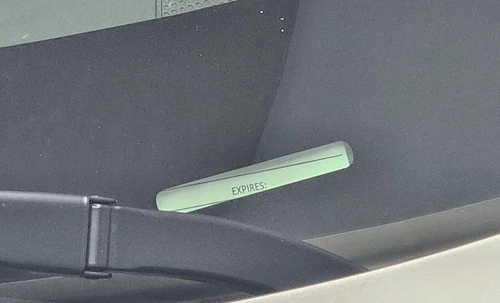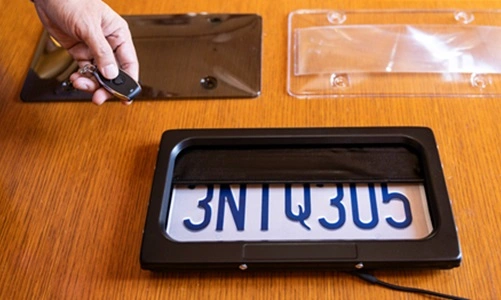Yes, it is illegal to cover or obscure the Vehicle Identification Number (VIN) in most circumstances in the United States. The VIN, a unique 17-character identifier for vehicles, is required by federal and state laws to remain visible for regulatory, law enforcement, and safety purposes. Obscuring or tampering with the VIN can lead to significant legal consequences.
Understanding the VIN and Its Importance
What is a VIN?
The VIN is a standardized code that identifies a specific motor vehicle. It is used for:
- Tracking Ownership and Registration: Ensuring the vehicle is properly registered and titled.
- Safety Recalls: Allowing manufacturers and owners to address safety defects.
- Crime Prevention: Helping law enforcement identify stolen vehicles and parts.
- Insurance Purposes: Assisting insurers in verifying vehicle details.
The VIN is typically found on the dashboard, visible through the windshield, as well as on the driver-side door frame and other locations such as the engine block.
Laws Governing VIN Visibility
1. Federal Law
Under 49 U.S. Code § 33110, it is a federal offense to knowingly remove, alter, or obscure a VIN on any vehicle or part. The law states:
- Covering or obscuring the VIN is considered tampering, as it interferes with the ability of law enforcement and regulatory agencies to identify the vehicle.
- Violations can result in fines, imprisonment, or both, depending on the severity of the offense and intent.
2. State Laws
Most states adopt federal guidelines but also have specific laws to address VIN visibility:
- California: Penal Code § 10750 prohibits tampering with or altering the VIN. Covering the VIN, even temporarily, is also considered unlawful.
- Florida: State law mandates that the VIN must remain visible at all times for law enforcement inspections and other regulatory purposes.
- New York: Concealing the VIN, even unintentionally, can lead to fines or other penalties if it hinders law enforcement efforts.
3. Exceptions
Certain situations, such as professional car repairs or manufacturer recalls, may require temporary covering or access to the VIN. In these cases, the covering is lawful as long as the VIN is restored to visibility once the work is completed.
Why Covering a VIN May Be Considered Suspicious
Covering a VIN can raise red flags for law enforcement because it may indicate:
1. Vehicle Theft: Criminals may obscure the VIN to prevent identification of stolen vehicles or parts.
2. Insurance Fraud: VIN tampering can be used to hide a vehicle’s true history, such as accident damage or flood exposure.
3. Illicit Activity: Covering the VIN may be part of efforts to avoid detection during the sale of illegal or misrepresented vehicles.
Legal Consequences for Covering a VIN
The penalties for covering or obscuring a VIN vary by jurisdiction and intent:
1. Federal Penalties:
- Violating federal VIN laws can result in fines up to $10,000 and imprisonment for up to 5 years.
2. State Penalties:
- State-level violations may include:
- Fines ranging from $500 to $5,000.
- Vehicle impoundment if law enforcement suspects illegal activity.
- Criminal charges, including misdemeanors or felonies, depending on the case.
3. Civil Consequences:
- Individuals involved in fraudulent sales of vehicles with covered or altered VINs may face lawsuits and be required to pay restitution to affected buyers.
Recent Legal Updates (2023-2024)
1. Digital VIN Tracking
As of 2024, several states are integrating digital VIN tracking systems that allow law enforcement to verify VINs electronically, even if partially obscured.
2. Enhanced Penalties for VIN Tampering
States such as Texas and Michigan have increased fines and penalties for VIN tampering to deter vehicle theft and fraud.
3. Consumer Protection Laws
New laws in states like California now require dealerships to disclose any past issues with VIN visibility, ensuring buyers are aware of potential red flags in a vehicle’s history.
FAQs About Covering a VIN
Q1. Is it ever legal to cover a VIN?
Ans: Yes, but only in specific circumstances, such as during professional repairs or recalls. The VIN must be restored to visibility once the work is complete.
Q2. What happens if I accidentally cover my VIN?
Ans: Unintentional covering is unlikely to result in penalties, but you should remove any obstruction immediately. Law enforcement may still issue a warning or fine if the obstruction hinders their ability to inspect the vehicle.
Q3. Can I use a sunshade or dashboard cover that obscures the VIN?
Ans: While sunshades are not explicitly illegal, they should not obscure the VIN when the vehicle is parked or in use. Law enforcement must be able to view the VIN through the windshield.
Q4. What are the penalties for tampering with a VIN?
Ans: Tampering, including covering or altering a VIN, can result in federal and state penalties, including fines, imprisonment, and vehicle impoundment.
Q5. Why do criminals cover or alter VINs?
Ans: Criminals may cover VINs to hide stolen vehicles, commit insurance fraud, or misrepresent a vehicle’s history during resale.


